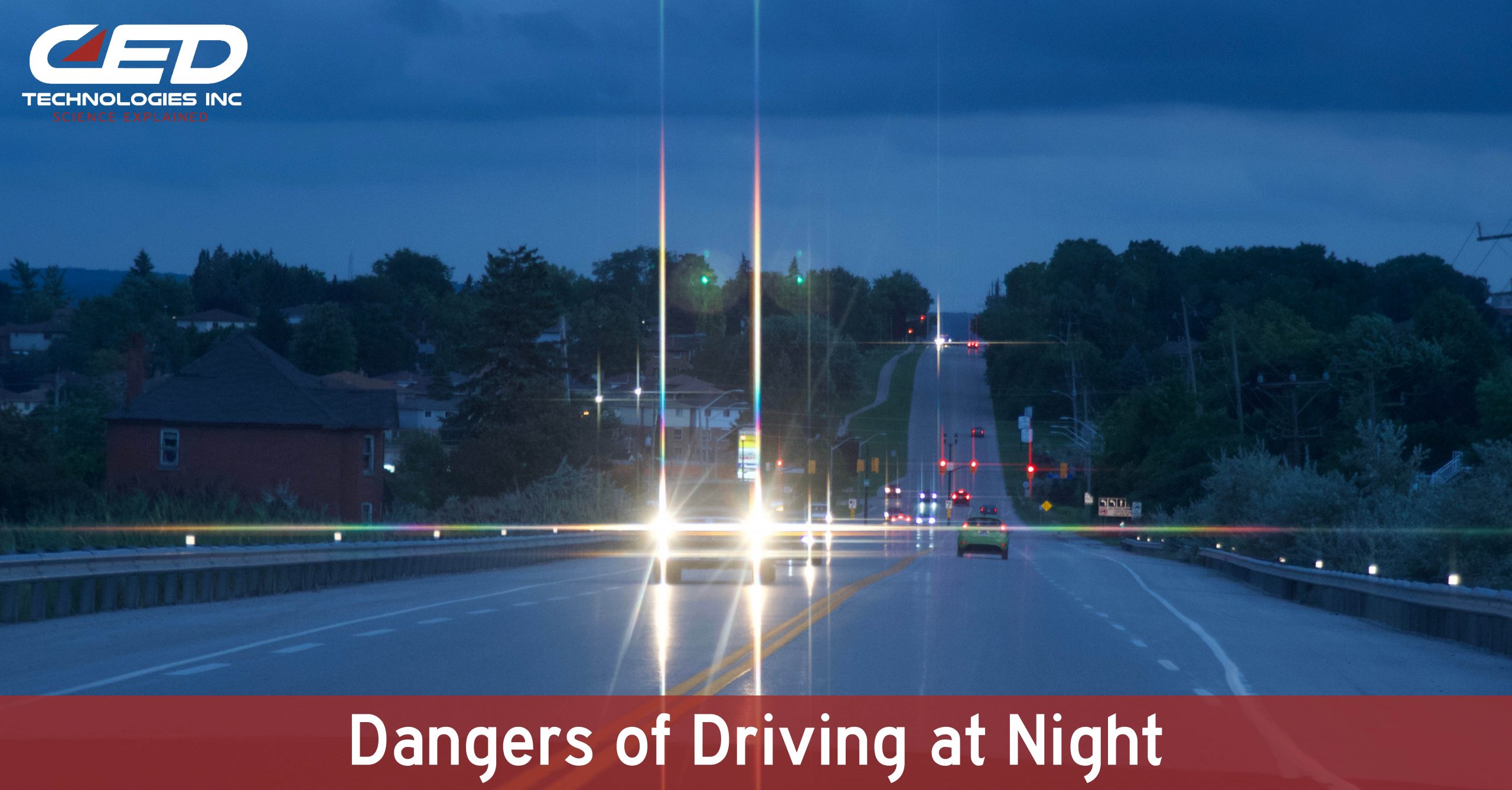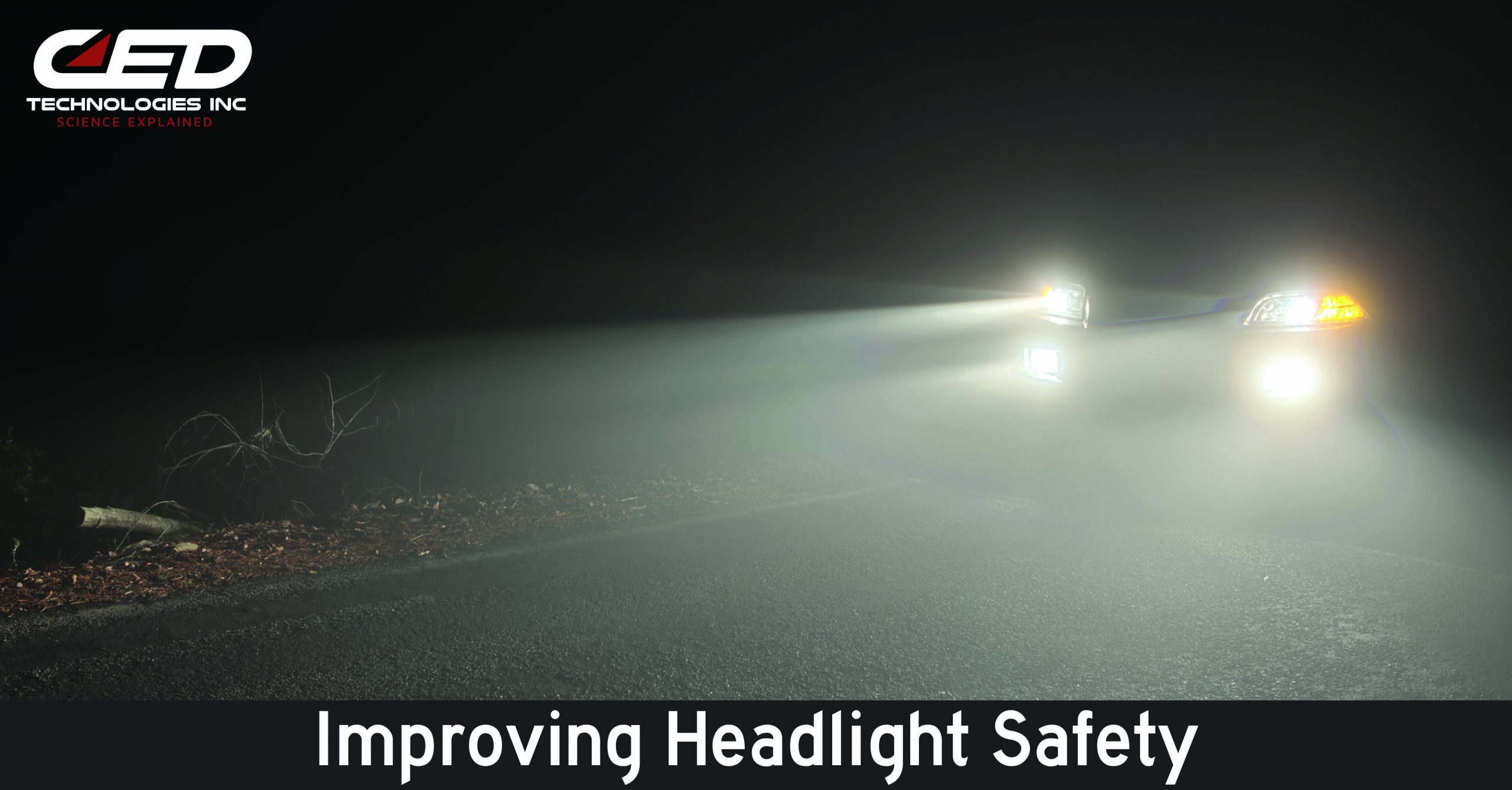The end of daylight savings in early November means earlier sunsets and commutes home in the dark. Driving at night is considered the most dangerous time to drive, according to the National Security Council (NSC). Nighttime vision is different than vision during the day. Even experienced drivers can be affected by compromised depth perception, color recognition, and peripheral vision in the dark. The glare of headlights from an oncoming vehicle can temporarily blind a driver.
While headlights can make a difference in night visibility, high beam headlights only provide about 500 feet of visibility (250 feet for normal headlights). Driving speeds deemed safe during the day drastically drop at night as the conspicuity of objects drops proportionately with the decreasing visual contrast and spatial frequencies of low light luminance.
Pedestrians present a potential for increased incidents. At night drivers should be aware of pedestrians in crosswalks and parking lots. The National Highway Traffic Safety Administration (NHTSA) reports that an average of 91,000 people are injured annually in parking lot incidents involving vehicles, and 35% of those injured are pedestrians nonoccupants. Parking lot incidents kill nearly 2,000 people each year and 39% of fatalities are pedestrians or nonoccupants.
When you combine distracted driving, perception and reaction time, and nighttime driving, there are multiple factors for an engineer to consider when investigating an accident. Given the complexity of the science underlying night driving, forensic engineers perform site and equipment inspections, research weather conditions, and complete engineering calculations. They use these observations and calculations to program recreations for the driver’s experience in the roadway condition.
While we only do 25% of our driving at night, 50% of traffic deaths happen at night. By taking some extra precautions, we can all contribute to reducing these numbers. If you have an accident or claim, contact us today to connect with an experienced engineer.
Click Here To See Our Full List of Experts Click Here To Submit an Inquiry about a possible Claim or Case.






